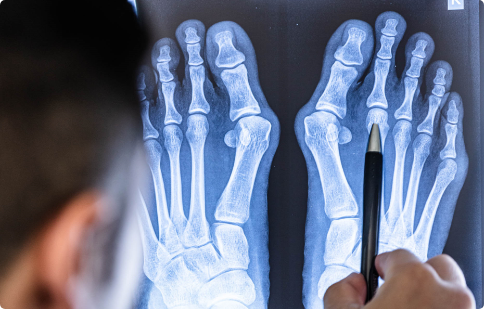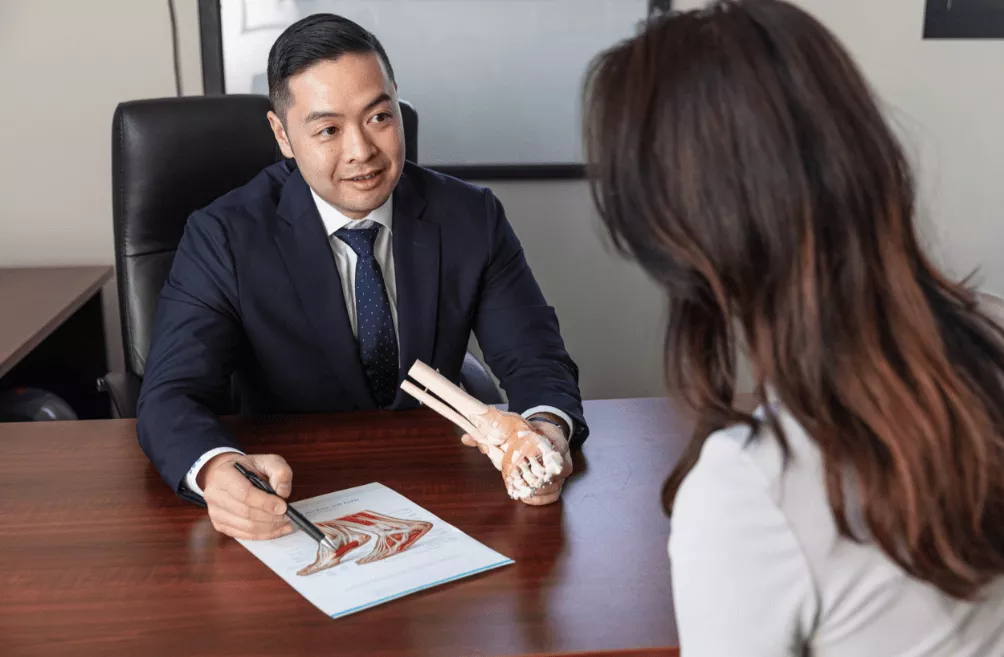Plantar Fasciitis & Morton’s Neuroma Treatments
What are the non-operative treatments for a Morton’s Neuroma?
Non-operative treatments should be trialed for at least 3 months prior to considering operative intervention.
Non operative measures include:
- Shoe wear modification for a wider toe box.
- Padding in the shoe.
- Physiotherapy.
- Activity Modification.
- Anti-inflammatory medication.
- Corticosteroid injections.

When do I require surgery for a Morton’s Neuroma and what does it involve?
Surgery is considered after 3 months of failed non-operative treatments. Surgery involves cutting out the compressed nerve and surrounding scar tissue. This has an 80-90% success rate but result in PERMANENT NUMBNESS in the affected toes.
Book an Appointment Today!

What to expect after Morton’s Neuroma surgery?
Morton’s Neuroma surgery is generally done as a day surgery procedure. You will go home in a post-operative shoe with pain relief and advised to elevate the leg are 1-2 days.
Dressings are to remain dry and intact until your first post-operative appointment. Your sutures will be removed after 2 weeks and scar massage and desensitization commenced. You should be able to return to a normal shoe at 2 weeks and full activities at 6 weeks.
Potential complications of Morton’s Neuroma surgery
All surgical procedures involve inherent risk of complications. However, these risks are generally uncommon and quite infrequent. These include anesthetic complications, wound infections, recurrence of the neuroma, injury to blood vessels supply the toe, chronic regional pain syndrome and blood clots
Patients can minimize the risk of complications by carefully following post-operative instructions.
Plantar Fasciitis & Morton’s Neuroma Conditions
View conditions for Plantar Fasciitis & Morton’s Neuroma.
